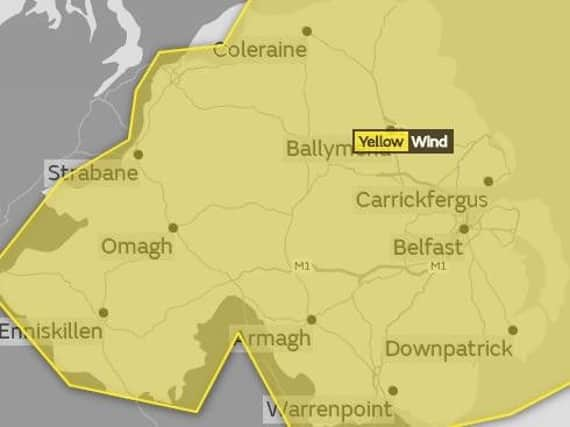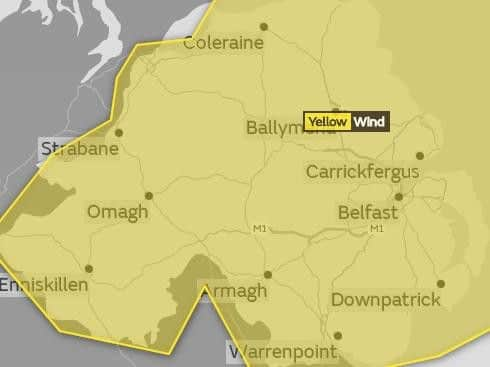Derry severe weather warning - What we know so far


Why has a weather warning been issued?
The Met Office issued a yellow status weather warning for wind.
What does yellow status mean?


Yellow warnings can be issued for a range of weather situations.
Advertisement
Hide AdAdvertisement
Hide AdMany are issued when it is likely that the weather will cause some low level impacts, including some disruption to travel in a few places.
Many people may be able to continue with their daily routine, but there will be some that will be directly impacted and so it is important to assess if you could be affected.
Other yellow warnings are issued when the weather could bring much more severe impacts to the majority of people but the certainty of those impacts occurring is much lower.
It is important to read the content of yellow warnings to determine which weather situation is being covered by the yellow warning.
How long is the warning valid for?
Advertisement
Hide AdAdvertisement
Hide AdThe Met Office's weather warning is valid between 5:00am and 11:59pm on Friday October 12, 2018.
What should I expect?
There is a small chance of injuries and danger to life from flying debris.
There is a slight chance of some damage to buildings, such as tiles blown from roofs.
Road, rail, air and ferry services may be affected, with longer journey times and cancellations possible.
Some roads and bridges may close.
Advertisement
Hide AdAdvertisement
Hide AdThere is a slight chance that power cuts may occur, with the potential to affect other services, such as mobile phone coverage.
There is a small chance that injuries and danger to life could occur from large waves and beach material being thrown onto sea fronts, coastal roads and properties.
What should I do?
BEFORE THE STORM
Secure loose objects such as ladders, garden furniture or anything else that could be blown into windows and other glazing and break them.
Close and securely fasten doors and windows, particularly those on the windward side of the house, and especially large doors such as those on garages.
Advertisement
Hide AdAdvertisement
Hide AdPark vehicles in a garage, if available; otherwise keep them clear of buildings, trees, walls and fences.
Close and secure loft trapdoors with bolts, particularly if roof pitch is less than 30°.
If the house is fitted with storm shutters over the windows then ensure that these are closed and fastened.
If chimney stacks are tall and in poor condition, move beds away from areas directly below them.
DURING THE STORM
Stay indoors as much as possible.
Advertisement
Hide AdAdvertisement
Hide AdIf you do go out, try not to walk or shelter close to buildings and trees.
Keep away from the sheltered side of boundary walls and fences - if these structures fail, they will collapse on this side.
Do not go outside to repair damage while the storm is in progress.
If possible, enter and leave your house through doors in the sheltered side, closing them behind you.
Advertisement
Hide AdAdvertisement
Hide AdOpen internal doors only as needed, and close them behind you.
Take care when driving on exposed routes such as bridges, or high open roads, delay your journey or find alternative routes if possible.
Slow down and be aware of side winds, particular care should be taken if you are towing or are a high sided vehicle.
Do not drive unless your journey is really necessary.
AFTER THE STORM
Be careful not to touch any electrical/telephone cables that have been blown down or are still hanging.
Do not walk too close to walls, buildings and trees as they could have been weakened.
Make sure that any vulnerable neighbours or relatives are safe and help them make arrangements for any repairs.